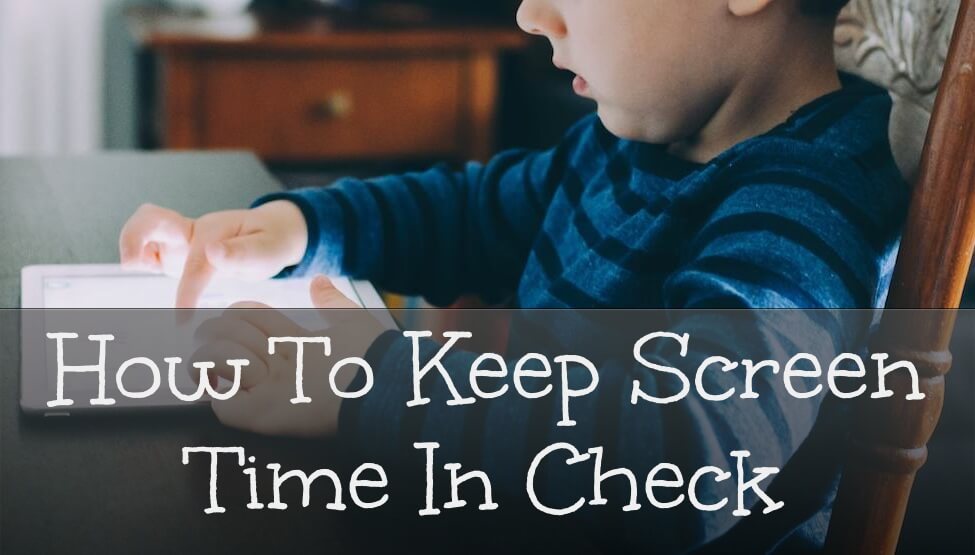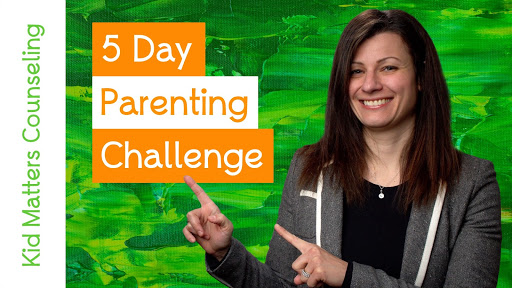Parents may feel overwhelmed or intimidated by the thought of it. As a speech-language pathologist and mother of two young children, we’ve recently implemented simple and effective strategies for reducing screen time.
Here’s what works for us (even in winter):
1. Create a “chore checklist.”
Our list stays on our fridge and my son moves a magnet up for each “job” he completes. Some tasks are easy, like “eat breakfast” and “play and read.” Others require more effort: “make your bed.”
When he asks to watch a show, I show him what jobs need to be completed before he’s allowed. This has eliminated a lot of whining. For some children, a simple “first / then” visual may be more appropriate.
Stick with it and your child will quickly understand the process.
2. Use Choices
Be prepared to shut the device off as soon as the allotted time is over and offer a new choice, “now you can play or read books.”
3. Don’t forget YOUR value
4. Keep Things Fresh.
Put together a craft drawer (it can simply be markers, paper, tape, and stickers). When you are desperate, make something messy.
Change your scenery. A simple trip to to the grocery store might be enough.
5. Model decreased screen time.
Spend time with your children without your phone in your hand.
6. Encourage independent play.
7. Music.
References
Apel, Kenn; Masterson, Julie.(2012). Beyond Baby Talk From Speaking to Spelling: A Guide to Language and Literacy Development for Parents and Caregivers. New York, NY. Three Rivers Press.
Eliot, Lisa. (1999). What’s going on in there? How the Brain and Mind Develop in the First Five Years of Life. New York, NY. Bantam Books.
Mayo Clinic Staff. (2016, November 18). Screen Time and Your Children–How to Guide Your Child. Retrieved from: https://www.mayoclinic.org/healthy-lifestyle/childrens-health/in-depth/screen-time/art-20047952
Wallace, Kelly. (2017, May 4). Letting Children Play on an iPad Might Lead to Speech Delays, Study Says. Retrieved from: http://www.cnn.com/2017/05/04/health/babies-acre en-time-speech-delays-study/index.html
Image Credit: Photo by Kelly Sikkema on Unsplash

Jennifer Houch
Speech-Language Pathologist
Kid Matters Counseling has trained therapists ready to help both kids and parents walk through the tough moments in life.
End the frustration & the confusion and let's work together! SCHEDULE APPOINTMENTNew Clients Call: (855) 586-1802
Current Clients: (855) 543-7687
Ask Us Anything!
We help anxious kids and frustrated parents. We serve Hinsdale & the Western Suburbs of Chicago.
Made with ♥︎ in Hinsdale, Illinois for Chicago
Built By Brand Your Practice.
Kid Matters Counseling, P.C. DISCLAIMER: This website and blog are for informational, educational and general discussion purposes only. It is understood that no guarantee or warranty arises from the information provided, discussed or commented upon in this website and blog nor does it constitute legal or other professional advice on any subject matter. Access to this website and blog is voluntary and at the sole risk of the user. If you think that you have a medical emergency (including clinical), call your doctor or 911 immediately. A licensed medical professional should be consulted for diagnosis and treatment of any and all medical conditions. While the information contained within this website and blog is periodically updated, no guarantee is given that the information provided is correct, complete, and/or up-to-date. See our complete Privacy Policy and Terms of Service.



